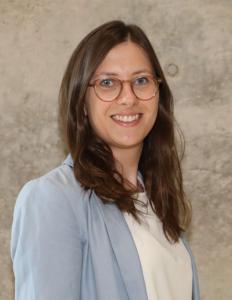Informes sobre los eventos
The COVID-19 pandemic has demonstrated that the current international health architecture is not fit for purpose. But we are now facing a small window of opportunity to adapt our international health system to strengthen pandemic preparedness and response (PPR) and prevent future global health emergencies.
Both Germany and the US are leading donors and actors in this regard. As such, they not only significantly contribute financially but can also use their political leverage to push for change of the international system.
In light of this current global challenge, the Center for Global Development (CGD) and the Konrad Adenauer Foundation (KAS) have launched an initiative to strengthen the understanding and ties between German and US policy makers, experts, and civil society organizations working on global public goods and sustainable development. Both institutions are jointly hosting a series of “Transatlantic Dialogues” discussing different aspects of financing for global public goods. As a first of the event series, a private roundtable on “Financing Pandemic Preparedness and Response – the role of Germany and the US” was held on July 9th 2021. While we held the gathering under the Chatham House Rule, this blog highlights some of the main discussion points and outlines areas of cooperation between the US and Germany on financing PPR.
Germany and the US committed to advancing the global health security agenda
In the current pandemic, both the German and US leadership have signaled their commitment to finding global solutions to ensure we never experience a similar crisis again. Together they now need to build on the current political momentum and show continued leadership to implement the necessary changes within the limited window of opportunity. But what should these changes look like? Amanda Glassman kicked off the roundtable discussions, presenting of some of the main finding of the G20 commissioned High Level Independent Panel (HLIP) on Financing the Global Commons for Pandemic Preparedness and Response, where CGD acted as a co-project lead.
Participants widely agreed with the Panel on the need to further invest in PPR and global health system strengthening more broadly. Estimates speak of the need for global investments of around $170 billion over the next five years, mainly in the form of additional domestic investments by national authorities. About $75 billion of this will have to be international financing over the next five years – or $15 billion per year. Even pre-COVID-19, Germany and the US had both contributed substantive sums to PPR and have further stepped up their financial commitments as reaction to the pandemic. While more investment is needed, we need to discuss how we can make use of these funds in the most effective way.
There is no global health security without multilateral cooperation
Participants widely agreed on the need for a multilateral approach to financing global public goods, based on multisectoral cooperation domestically and internationally. The US and Germany can provide leadership to advance close cooperation in formats such as the G7 and G20. To create a more resilient, equitable and sustainable system, it is however imperative that discussions go beyond high-level forums and all relevant stakeholders are part of the discussions.
Given the plethora of state and non-state actors, institutions, financing facilities and initiatives in this field, the roundtable discussed the need for a central coordinating unit for global health security and PPR. A new body, surrounded by global health organizations with distinct mandates centered on their respective fields of expertise, could potentially make the system fit for purpose. It might limit duplication and competition between different actors and create a more coordinated and complementary system. Experts also discussed a possible role for a Global Health Threats Board under a G20+ platform, aiming to ensure close coordination among the key international bodies.
There were differing views, however, on whether the creation of a new coordinating unit or the strengthening of existing structures is the most promising approach. Some discussants voiced concern about the need to create a new coordination mechanism, as this might lead to further fragmentation and duplication. But there was agreement that the WHO is currently not adequately set up for an overarching coordination role due to the lack of political will and insufficient funding. This leaves key units, such as the health emergency program, chronically underfunded. To make the system fit for purpose, we need to address current weaknesses in financing and coordination structures such as in ACT-A, as well as identify successful features from existing structures. An adequate benchmarking of funds allocated for PPR and GHS is a necessary step for improvements.
Participants agreed that, independently from the coordination mechanism, close collaboration between finance and health experts is crucial, while a whole of government approach can ensure that increased health security spending is additional and does not come at the expense of poverty alleviation.
International Financial Institutions (IFIs) and multilateral development banks (MDBs) have a crucial role to play in financing global health security by incentivize investments in financing global public goods and ensure they offer quick and unbureaucratic access to financing in times of crisis.
There is a need for renewed transatlantic leadership on global issues
Prevention emerged as central lever for global health security, with respective investments paying off substantively compared to the financial and human cost of pandemics. While coordination and cooperation on the multilateral level play a key role, country ownership and country-specific solutions to foster prevention capacities also matter. While countries such as the US and Germany can lead by example and provide necessary political leadership, all countries need to enhance their prevention capacities. For lower-income countries with limited fiscal space and chronically underfunded health systems, this will require significant support by donors.
The first edition of CGD-KAS Transatlantic Dialogue illustrated the need for the US and Germany to take on a leading role in financing global public goods to meet the challenges of the future. Through their cooperation and joint leadership, they can push forward overdue reforms and support other countries in their efforts towards stronger health systems. However, they cannot do it alone – a functioning international health system needs a strong multilateral system. The issue of where this “center of gravity” is located at –the WHO, the UN or a new structure - remains one of the key questions for building a more resilient international health system.
Sobre esta serie
La Fundación Konrad Adenauer, sus talleres de formación, centros de formación y oficinas en el extranjero ofrecen anualmente miles de eventos sobre temas cambiantes. Le informamos en www.kas.de acerca de una selección de conferencias, eventos, simposios etc. , de forma actual y exclusiva. Aquí, usted encuentra, además de un resumen en cuanto al contenido, materiales adicionales como imágenes, manuscritos de diálogos, vídeos o grabaciones de audio.




